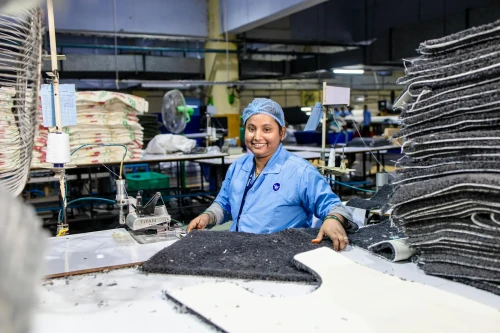Font size:
Aspiring entrepreneurs challenges are diverse. To some, the problem is about capital sourcing while for others it is what to do with the fund they have. If your case is the later and you have up to 3 million naira and you are clueless about the business to venture into then you may want to consider going into small scale manufacturing. Manufacturing is where real value is created, and ₦3 million can actually take you far if you start small and focus on light manufacturing or semi-automated production.
Below are 9 practical manufacturing business ideas you can start in Nigeria with ₦3 million or less, along with what you’ll need, why they are considered viable, and of course the profit potential:
1. Liquid Soap, Detergent & Cleaning Products
Startup Capital: ₦500k–₦1.5m
Why: Huge and consistent demand from homes, hotels, schools, and offices.
Needs: Mixing tanks, sealing machine, chemicals (SLS, STPP, Texapon, etc.), plastic containers, branding.
Bonus: You can add toilet wash, bleach, and air freshener later.
Profit Margin: 30–50%
2..Paint Manufacturing
Startup Capital: ₦1.5m–₦3m
Why: Constant construction means constant paint demand.
Needs: Mixer, scale, buckets, chemicals (titanium dioxide, calcium carbonate, etc.), and colorants.
Profit Margin: 35–50%
Tip: Build a strong local brand name and focus on builders and decorators.
3. Candle and Soap Bar Production
Startup Capital: ₦1m–₦2m
Why: Used in homes, churches, and during power outages.
Needs: Wax, molds, dye, fragrance, packaging materials.
Profit Margin: 30–45%
4. Small-Scale Garri Processing or Packaging
Startup Capital: ₦2m–₦3m
Why: Garri sells every day, across all income levels.
Needs: Cassava grater, presser, fryer, siever, packaging machine, branding.
Profit Margin: 25–40%
Tip: Focus on clean, branded packaging — that’s where the real money is.
5. Snacks & Chin-Chin Production
Startup Capital: ₦1m–₦2m
Why: Snacks are part of Nigerian daily life — from schools to offices.
Needs: Mixer, cutter, fryer, sealing machine, packaging.
Profit Margin: 40–60%
Tip: Distribute to supermarkets and school canteens.
6.Plastics or Nylon Bag Production
Startup Capital: ₦2.5m–₦3m
Why: Packaging materials are used across all industries.
Needs: Nylon-cutting machine, sealing machine, raw rolls, printing materials.
Profit Margin: 25–45%
Tip: Start with custom-printed nylon for shops and boutiques.
7. Furniture & Woodworks (Modern Finishing)
Startup Capital: ₦2m–₦3m
Why: Growing middle class, real estate boom, and weddings fuel demand.
Needs: Carpentry tools, saws, polishing machine, and workspace.
Profit Margin: 30–60%
Tip: Focus on ready-to-assemble or small apartment furniture for faster turnover.
8. Small-Scale Bakery / Bread Production
Startup Capital: ₦2m–₦3m
Why: Bread sells daily in every Nigerian community.
Needs: Oven, mixer, dough divider, generator, NAFDAC license.
Profit Margin: 20–35%
Tip: Start with a local area bakery supplying shops, not a walk-in model.
9. Cosmetics & Body Care (Shea Butter, Creams, Hair Oil)
Startup Capital: ₦1m–₦2.5m
Why: Nigerians love affordable skincare; natural brands are trending.
Needs: Mixer, filling machine, bottles, branding, fragrance, preservatives.
Profit Margin: 40–60%
Tip: Position as “natural” or “organic” and sell online.
Important Tips for Manufacturing Success
Unless you already have a relatively free space, avoid citing your business in city center due to high cost of rental space.
Register your business and meet regulation laws (CAC + NAFDAC where applicable).
Invest in good branding and packaging — that’s what sells in Nigeria now.
Start small but scalable; reinvest profits before expanding.
Secure a steady power supply or a generator; production downtime kills profit.
Source raw materials locally to avoid forex shocks and import related delays. Apart from that,by patronizing local suppliers you would be creating more employment opportunities.
In conclusion, starting your manufacturing business doesn’t automatically turn your business to a successful one, it will require dedication, focus, competitive pricing, innovation and effective marketing to thrive.
 By
By 
